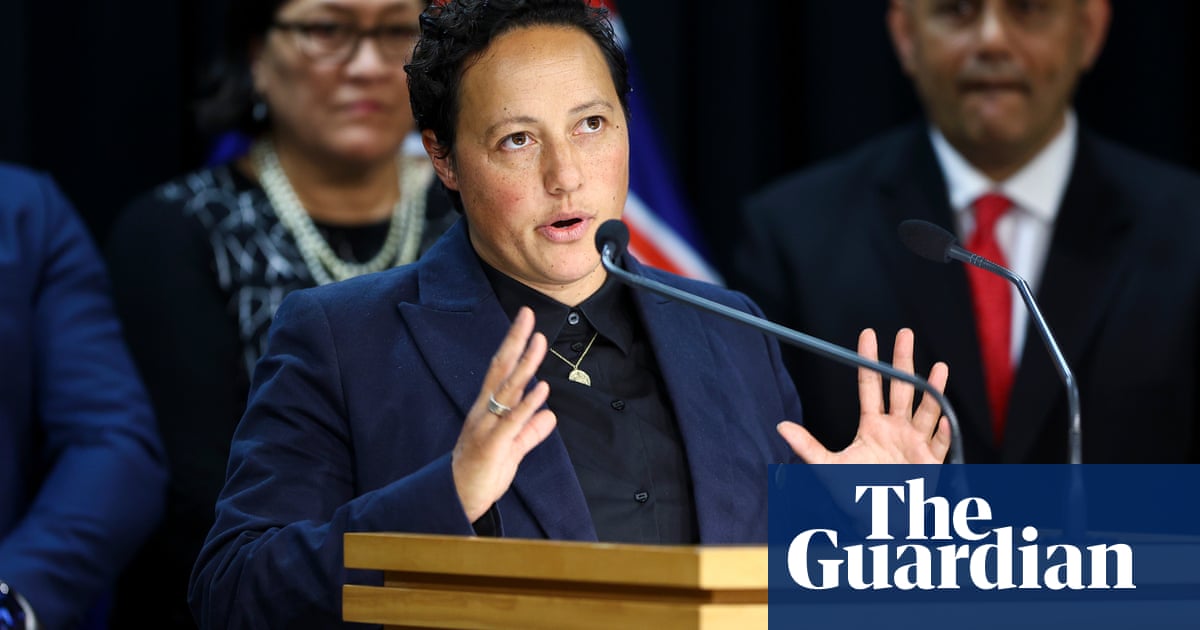New Zealand’s justice minister resigned on Monday after police charged her with reckless driving and resisting arrest after a car crash.
Kiri Allan was involved in the crash shortly after 9pm on Sunday in Wellington, said prime minister Chris Hipkins, and she was detained at the central police station before being released four hours later.
Police have charged her with careless use of a motor vehicle, and refusing to accompany a police officer, and summonsed to appear in court at a later date. Allan was handed an infringement notice for excess breath alcohol between 250 and 400mcg.
The incident involving Allan was the latest in a series of missteps and scandals involving government ministers less than three months out from national elections. Polls indicate the conservative opposition has pulled level or moved slightly ahead of the incumbent liberals in what promises to be a close race.
Once considered a rising star of the Labour party, Allan had recently taken time off for her mental health after being involved in a public split with her partner and accusations of poor working relationships with staff.
Hipkins said he spoke to Allan on Monday morning and told her that he thought she wasn’t in a fit state to remain a minister and that it was untenable for a justice minister to be charged with criminal offending. She agreed and resigned her ministerial roles, Hipkins said.
For now, Allan remains a member of parliament.
“While her alleged actions are inexcusable, I’ve been advised she was experiencing extreme emotional distress at the time of the incident,” Hipkins said. “Her recent personal struggles with mental health have been well documented and it appears some of those issues came to a head yesterday.”
Allan said she was sorry for her actions and was heading home to consider her future in politics. “Over recent weeks I’ve faced a number of personal difficulties. I took time off to address those, and believed I was OK to juggle those challenges with the pressure of being a minister,” she said in a statement. “My actions yesterday show I wasn’t OK, and I’ve let myself and my colleagues down.”
Last month, transport and immigration minister Michael Wood resigned after failing to disclose a possible conflict of interest with stock he owned. In March, police minister Stuart Nash was sacked after it came to light he had given confidential information to donors. In May, customs minister Meka Whaitiri was fired after switching allegiance to another political party.
Hipkins took over as prime minister in January after his predecessor Jacinda Ardern stepped down. New Zealand’s elections will be held on 14 October.



Racism is never acceptable, even when one thinks they have a good reason. All racists think their racism is justified. In a democracy each person gets one vote. We don’t give people extra votes on the basis of race. Democracy is sacrosanct, and any party seeking to dismantle it is going to be rightfully voted out of power.
The current government seeks to give Maori tribes (iwi) preferential power over national water assets. It is effective control over how water is distributed throughout the country.
Yea, hard disagree there. Getting things back in shape often requires going in the opposite direction, even somewhat extremely. Cultural inertia, selfishness etc are often what hold back things like reconciliation and reparation. Absolutes aren’t nearly as useful, IMO, as their adherents like to think.
So I looked into it a bit further and you’re being fed half a story.
There’s a whole saga about the government selling off it’s water assets to private businesses and Māori basically bringing up their old, but still intact, legal ownership over the water to null and void the attempted sales.
There’s another saga about a city council selling rights to drain an aquifer to a private company that is siphoning huge amounts of water out and selling it to China for profit.
Water rights in New Zealand are a mess.